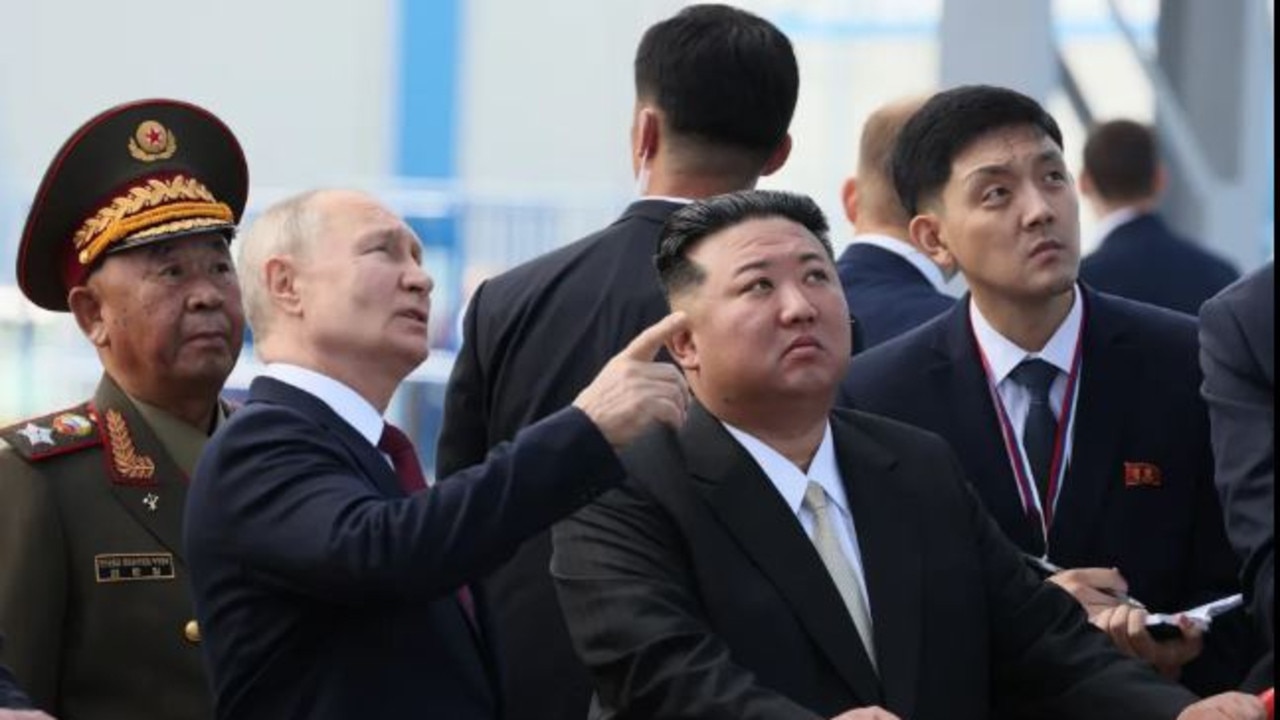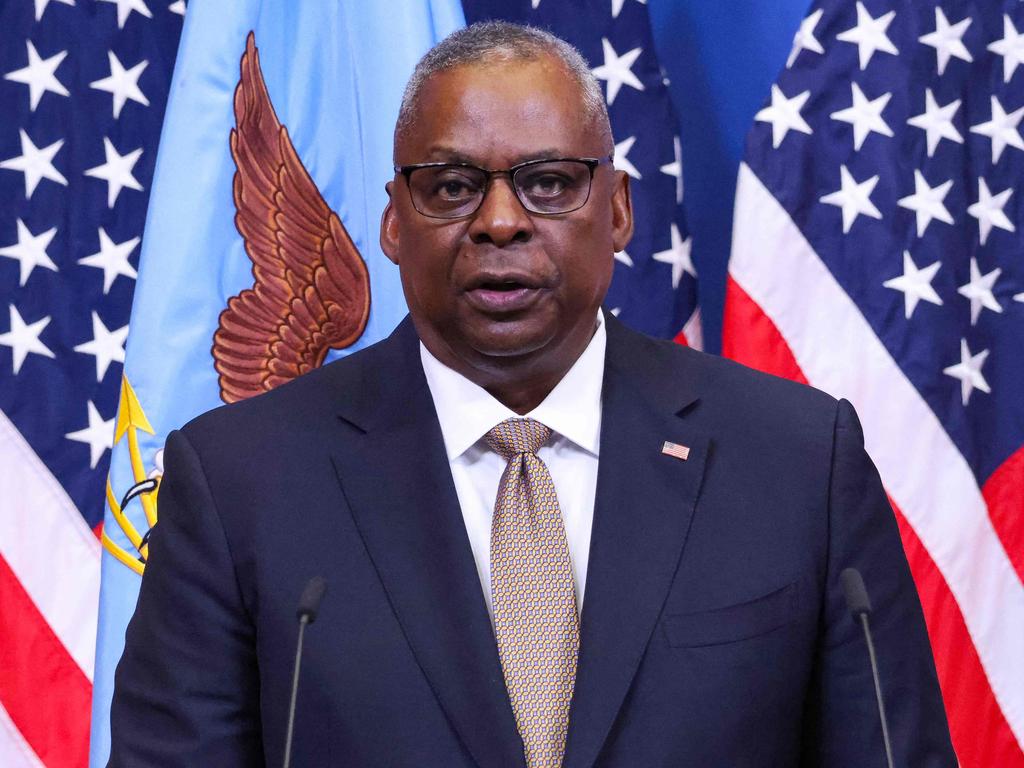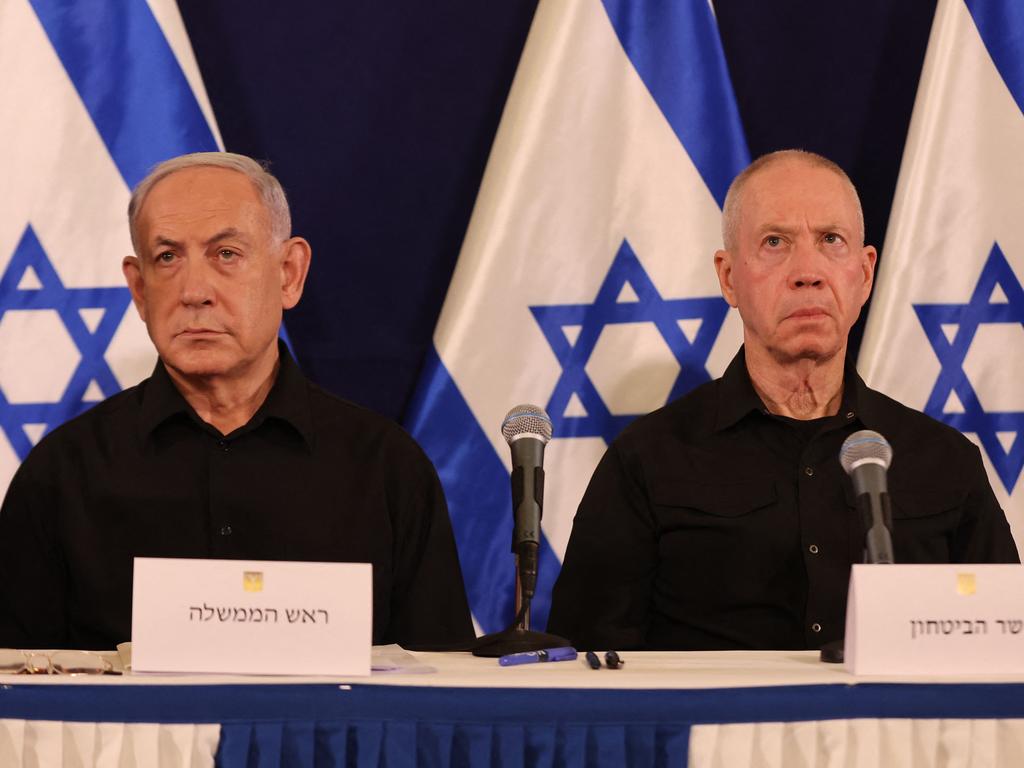Israel-Gaza conflict reveals a failure of Western defence has emboldened China, Russia, Iran and North Korea


At the same time the West has never been more divided, more internally feeble, nor looked less likely to display necessary purpose and strength. Its leaders scramble to cope with each crisis but do almost nothing to build capacity to prevail in sustained conflict.
Attacks on the West happen in a radical new context, the de facto and increasingly explicit anti-Western alliance between China, Russia, Iran and North Korea.
Consider. Russia is attacking Ukraine even as we speak and has previously taken military action against other independent nations on its periphery, such as Georgia, while also threatening other east and central European democracies. More than once it has threatened the use of nuclear weapons.
Iran, through proxies in Hamas in the Gaza Strip, Hezbollah in Lebanon, militias in Syria and Houthi rebels in Yemen, is attacking Israel and also attacking US troops located in Iraq and Syria. Iran, too, threatens to directly attack Israel, and US targets in the Middle East, if Israel’s retaliatory military action in Gaza is prolonged. Iran has laughed at efforts to get it back to an agreement on management of its nuclear industry and has now passed the threshold of enough enriched uranium for a nuclear weapon.
China, according to sober public remarks by ASIO head Mike Burgess, is involved in relentless cyber theft of intellectual property in Western nations, including in Australia, on an unprecedented scale. It has intensified cyber attacks on Taiwan. It has repeatedly rammed Philippine ships in Philippine waters in pursuit of completely baseless Chinese claims to sovereignty throughout the entire South China Sea. It is enlarging its arsenal of nuclear weapons as part of a massive military build-up. It has repeatedly threatened military action against Taiwan.
North Korea is supplying weapons to Russia. The strategic co-operation between these four nations is now intense. The day US President Joe Biden visited Israel, Vladimir Putin was in Beijing, lavishly hosted by Xi Jinping. Putin in turn hosted Hamas leaders in Moscow. Iran supplies deadly drones in large quantities to Russia. Putin has pledged Russia’s long-term support for North Korea.
Meanwhile, inspired or enraged by events in Gaza, Islamist terrorism has seen an uptick. All over the West mass demonstrations are run against Israel, many of which have been blatantly anti-Semitic, whereas whatever momentary outrage was evident in response to the most barbaric atrocities committed by Hamas has effectively disappeared. Israel has a right to self-defence until it defends itself.


British Labour leader Keir Starmer, like Australian Labor leader Anthony Albanese, can’t keep his frontbench in line on the Israel-Hamas conflict. Western broadcasters such as the BBC and our own ABC can’t even bring themselves routinely to refer to Hamas as a terrorist organisation, even though it is defined as such under law in both Britain and Australia.
Most shockingly, virtually no Western nation apart from Japan is making a serious effort to increase defence expenditure or its defence industrial base. That certainly includes Australia.
As John Lee has argued, Australia’s failure to pull its weight in defence already threatens to undermine AUKUS. Everyone sees the Albanese government, like other Western governments, has rightly identified today’s uniquely dangerous strategic environment but not done anything about it except cuddling the Americans, hoping as ever that they’ll take care of business.
All of government involves choice. If you do one thing, you can’t do another. Western nations, all mired in debt and vast social transfer payments, are deliberately choosing not to pay for security.
The China-Russia-Iran-North Korea de facto alliance commands an enormous defence industrial base, greater than the US. These powers are already fighting, using their proxies to fight, helping their allies fight and proclaiming they plan to fight in the future.
That means Western powers should be spending 3 per cent to 4 per cent of GDP on security. Instead, they are all, except Japan, keeping defence spending nearly static, perhaps with token increases off a tiny base, like New Zealand. None, except the US, remotely approaches meeting the need. The Albanese government is now a shocking failure in these terms. It’s hardly alone.
When Russia invaded Ukraine a rightly panicked German Chancellor Olaf Scholz dramatically declared that from that day forward Germany would spend at least 2 per cent of its GDP on defence, theoretically the NATO minimum. But recently the German government declined to make that a binding pledge in its budget law, instead coming up with an almost Australian fudge to say it would spend 2 per cent on average over five years, starting some time other than now. It resembles Albanese Labor proclaiming in opposition it would do whatever it takes to defend Australia, then doing nothing.

Meanwhile, US political dysfunction is seriously undermining security. Biden has steadfastly supported Israel. But Republicans, influenced by Donald Trump who has no coherent foreign policy but an instinct for isolationism, have become hostile even to supporting allies who don’t ask for a single American soldier to fight for them.
Republican ultras rebelled against the speakership of Kevin McCarthy partly because he stitched together a deal to secure aid for Ukraine. A majority of house Republicans recently voted against funding to train the Ukrainian army. The Russia-Ukraine war will continue a long time unless the West abandons Ukraine and it has to surrender. The Israel-Hamas conflict, or a wider regional conflict, will persist a long time, too. Beijing could well decide it will never have a better moment to take action against Taiwan.
Could the US possibly cope with three simultaneous wars and with allies that are almost universally useless militarily, like Australia? In a prolonged conflict between two big nations, or two big coalitions of nations, the likely winner is the side with the greatest military industrial capacity. That was true in the American civil war, in World War II, in many conflicts.
In an important paper for the Royal United Services Institute last year, Alex Vershinin argued: “Currently, the West might not have the industrial capacity to fight a large-scale war … Western countries have scaled down military industrial capacity and sacrificed scale and effectiveness for efficiency.”
In most nations there is only one purchaser for military equipment, the government. If it scales back or can never make a decision, like Canberra, big firms shed capacity and small firms go out of business.
Not only that, Western nations have been shedding manufacturing altogether. The massive rises in energy prices Western nations are inflicting on themselves through climate change policies, whose costs their enemies and competitors are not imposing on themselves, make it hugely difficult to swing back to heavy military production quickly.
The Alliance for Responsible Citizenship conference, which I’m honoured to be participating in at the moment in London, is trying to address both the external threats and internal weaknesses and motivations of the West. It’s aiming at the right targets, but are enough people listening?
Greg Sheridan is attending the conference as a guest of the Alliance for Responsible Citizenship.







Not since World War II has the West been so strategically threatened as today. All of the West’s most powerful and important enemies are involved in military attack against it, or supporting attack by their allies, or proclaiming they plan to attack soon.